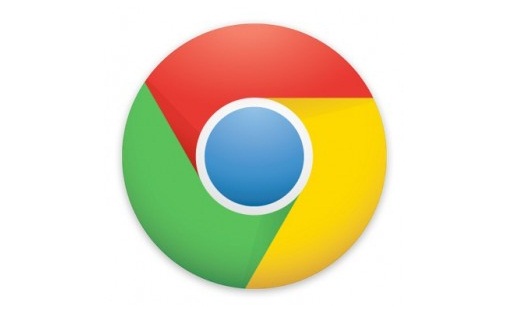Google To Begin Disabling Third-Party Chrome Cookies In Q1 2024

Google’s Privacy Sandbox to begin replacing third-party cookies for 1 percent of Chrome users in Q1 2024, with full switch off later
Google’s ultimate ambition for its Chrome browser to block third-party cookies that can track user activity across different websites, has moved one step closer.
Google announced this week that when Chrome 115 is released in July, it will include support for the Privacy Sandbox set of replacement standards, so that firm can test them.
And Google confirmed that it will turn it off third-party cookie support for 1 percent of Chrome users in Q1 of 2024 to allow for developer testing.
![]()
Third-party cookies
Google still intends to turn off third-party cookies for all Chrome users later in 2024, in a move that will not please some advertisers.
It should be noted that other browsers such as Apple’s Safari or Mozilla’s Firefox have blocked third-party cookies for years now.
“The Privacy Sandbox is an ecosystem-wide initiative to ensure an open and thriving web, by improving user privacy and giving businesses the tools they need to succeed online,” wrote Anthony Chavez, Google’s VP Privacy Sandbox.
“Over the past three years, we’ve collaborated with the web ecosystem to develop new, privacy-preserving technologies that don’t rely on cross-site tracking identifiers or covert techniques like fingerprinting,” wrote Chavez. “Last year, we expanded testing so that developers can evaluate these new technologies as they incorporate them into their solutions.”
“Today, we’re sharing an update on the next stage of the Privacy Sandbox for the web, as we work towards deprecating third-party cookies in Chrome in the second half of 2024,” he wrote.
“Starting with the July Chrome release, and over the following weeks, we’ll make the Privacy Sandbox relevance and measurement APIs available to all Chrome users,” wrote Chavez.
“In Q1 of 2024, we plan to deprecate third-party cookies for one percent of Chrome users,” wrote Chavez. “This will support developers in conducting real world experiments that assess the readiness and effectiveness of their products without third-party cookies.”
In addition Chavez noted in Q4 of 2023, Google will introduce the ability for developers to simulate Chrome third-party cookie deprecation for a configurable percentage of their users. This will enable developer-controlled testing that can benefit from higher levels of third-party cookie-less traffic.
“This plan has been developed in consultation with the UK’s Competition and Markets Authority (CMA), in accordance with our Commitments and public timeline,” wrote Chavez. “We will continue to address comments made by the CMA, as we prepare for third-party cookie deprecation beyond one percent of Chrome users once the CMA has completed its assessment.”
CMA oversight
Google had unveiled its cookie proposals as far back as May 2019, in response to what it said was users wanting more privacy when they are browsing the web, including not being tracked across websites.
Collectively, Google’s changes are called the ‘Privacy Sandbox’ project, and will disable third party cookies on the Chrome browser and Chromium browser engine.
Google will instead replace these tracking cookies with a new set of tools for targetted advertising and other functionality that the search engine giant says will protect consumers’ privacy to a greater extent.
The UK’s CMA watchdog had in January 2021 opened an investigation into Google’s proposals to remove third party cookies, and then in June 2021, Google agreed to the CMA’s oversight of the process, after complaints from unhappy advertisers.
The CMA thus took up the role in the design and development of Google’s Privacy Sandbox proposals to ensure they do not impede competition in digital advertising.
And Google agreed to not implement its plan without the CMA’s sign-off, and would apply the approved plan around the world.
In November 2021 Google made fresh concessions to restrict its use of data from its Chrome browser, in order to address CMA concerns about its efforts to ban third-party cookies that advertisers use to track consumers.
Cookie apocalypse is here
The news that Google will be turning off third-party cookies for 1 percent of users in 2024, followed by general switch off later that year is unsurprising given consumer sentiment around how their personal data is used online, Carl White, CEO of Nano Interactive told Silicon UK.
Nano Interactive is an internet marketing service and it said its own research has recently revealed:
- 70 percent of UK consumers now regularly hide their personal data when online;
- One in six people say they clear their internet browsing history and cookie cache daily;
- and 18 percent say that they opt out of websites’ tracking cookies on a daily basis.
Indeed, Nano Interactive said that when user were asked why they have become more conscious about online privacy in recent years, ad tracking was cited as the number one reason.
Two fifths (42 percent) said this had made them more privacy conscious in the past three years, more than data breaches (31 percent) or being targeted by online scammers (31 percent).
“The cookie apocalypse isn’t coming next year – it’s already here,” noted Carl White, CEO of Nano Interactive. “Huge swathes of people already cannot be addressed online via cookies or profiling.”
“This is a huge issue for advertisers, who need to embrace and test longer term alternatives that will be more palatable to online audiences and avoid clinging on to outdated or unpopular identity based targeting methods,” said White.
“In 2023, you don’t need to know who someone is to deliver effective advertising online,” White concluded. “Brands and advertisers who embrace truly ID-free targeting will be able to target people online in a respectful, effective way today that is future-proofed.”